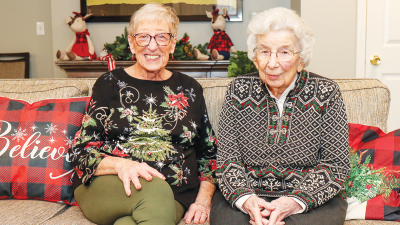HAZEL PARK — Can an artificial intelligence show racial bias? It’s possible, depending on the dataset used to train it, and it’s one of the intriguing issues that a new state committee will study.
During its first meeting of the year Jan. 22, the Michigan Civil Rights Commission launched three new committees focused on priority issues for 2024. One of them is the Diversity, Equity and Inclusion Committee chaired by Commissioner Luke Londo, who is also a member of the Hazel Park City Council. Gov. Gretchen Whitmer tapped him for the commission in the fall of 2022. The DEI Committee will take the lead on the biased AI issue.
“One area we will look into heavily is racial equity in AI,” Londo said. “AI is only as good as the input that comprises it. When you have any level of bias by the people who are coding or creating these platforms, it can create disadvantages for racial communities. We’ve noticed over the last few years that facial recognition can create false positives for people of color, confusing two completely different people. And what we’ve learned is the dataset being fed into the AI didn’t have enough people of color — it was predominantly white individuals — so there wasn’t a large enough dataset to distinguish them, and it was lumping them all together.”
The other new groups formed by the commission include the Voting Rights Committee chaired by Commissioner David Worthams, who also serves as the director of employment policy for the Michigan Manufacturers Association, and the Juvenile Justice Committee chaired by Commissioner Zenna Elhasan, who is also the general counsel at the Kresge Foundation.
The commission itself will be chaired by Gloria Lara in 2024. Lara is a former executive director of the Lakeshore Ethnic Diversity Alliance, a nonprofit based in Holland, Michigan.
As for Londo, he has already made an impact during his time on the commission. He helped introduce and pass resolutions banning conversion therapy and expanding the Elliott-Larsen Civil Rights Act to include LGBTQ protections, personally testifying on behalf of the commission and the Michigan Department of Civil Rights. Both passed the Michigan Legislature and were signed into law. He also voted in favor of resolutions advocating for licenses for anyone living in the state regardless of their immigration status, as well as an expansion of hate crimes legislation.
He said the state has made great strides toward social justice in recent years, but there are still many groups of people who are hurting.
“In 2023, as a state, I think we’ve come further than we have ever before in such a short period of time when it comes to improving civil rights of Michiganders, particularly thanks to the myriad of legislation passed. But one year doesn’t make up for decades of business as usual where issues were not being addressed,” Londo said. “I think there is still quite a lot of work to be done, particularly when it comes to improving equity for the LGBTQ community. Generally speaking, we’re heartened by the progress made over the last year, and optimistic that 2024 will be an even better year for improving civil rights.”
He said part of the challenge has been breaking through the noise of misinformation.
“We’re acutely aware of the interesting moment we find ourselves in, where we’re in a country that has never been more divided on these issues,” Londo said. “We’re the products of a 24/7 news cycle and social media, and of a post-fact world where lies are being shared with impunity, and people are attacking educational institutions and the foundations of democracy. If someone is not willing to listen to a peer-reviewed article widely accepted by the scientific community, then you really don’t have much ability to engage thoughtfully with them. But even so, in the context of civil rights, I think we’re making a lot of improvements, despite the political environment being so volatile.”
Ed Klobucher, the city manager of Hazel Park, commended Londo for his service.
“It’s great that someone from Hazel Park is serving on this important commission,” Klobucher said. “The commission is lucky to have Luke. He is a thoughtful and reflective decision-maker, who listens and learns before he makes a decision.”
 Publication select ▼
Publication select ▼















